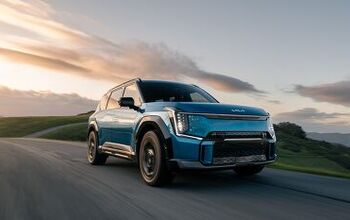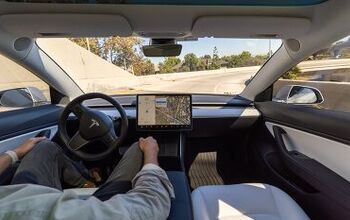EV News – Ghosn: I Have No Competition; GM's Reuss: Volt Will Give Way To BEVs; DBank: Battery Prices To Plummet

In typical Carlos Ghosn style, the father of the Nissan EV throws down the gauntlet. gm-volt.com quotes him from a talk with reporters:
“Frankly, I mean so far there is no competition. Let’s be serious. It’s not because someone is coming with a prototype and one car that this is competition. The question is how much capacity are you building. What I am sure is that in 2011, I am going to be the only one on the market”.
In that regard, Ghosn has put production capacity where his mouth is with Nissan planning on 500k in global sales by 2012: “The numbers are big,” Ghosn said. As a frame of reference, GM has indicated production of 8k Volts in 2011, and an ability to ramp up to about 50k annually thereafter. Did GM bet on the wrong horse with its smaller battery but range-extending generator equipped Volt? GM NA Prez suggests that might well turn out to be the case.
gm-volt.com founder Lyle Dennis asked Reuss whether BEVs (battery only EV, like Leaf) or EREVs (electric range extending vehicle, like the Volt) would turn out to be more popular:
“Long term demand (for) BEV could be higher…As the technology flows down to BEV in what will be smaller cars to carry smaller packs, that may be the higher volume play over a longer time.”
Deutsche Bank projects that Li-ion battery prices will be dropping faster than previously projected. Automakers are already seeing bids for $400/kwh for large volume EV battery pack contracts. And DB Projects that they will drop by some 25% to 50% over the next 5/10 years, and that performance (power density, etc.) will double in the next seven years. These steeper price declines strongly suggest a more rapid potential for EV market penetration.
It’s looking like the odds for Carlos’ big EV gamble are improving by the day.

More by Paul Niedermeyer
Latest Car Reviews
Read moreLatest Product Reviews
Read moreRecent Comments
- Dale Quelle surprise.
- 3SpeedAutomatic Nice looking, but IIRC, there was an issue with these engines where a knock would develop. That may account for the very low milage. 🚗🚗🚗
- Redapple2 Used to watch F 1 a great deal. Now? F1 Random thoughts:1 Silly rules bug me. Must use 2 types of tire. Cant refuel. Drag reduction can only be used in certain areas of the track and only if you are so close to the car in front.2 Passing is rare. Pole sitter wins a high % of the time.3 A new team can only start in F1 if they get the blessing of the overlords. Evil gm Vampire was barred. How about this. Anybody with a car that meets the construction rules can try. If your speed qualifies and you pay the entry fee. You re in. So is anybody else. 4 I tune in for Martin Brundle's grid walk. In my life, it s must see tv. But he is often bumped or cancelled. Grid walk takes place 1 out of 3 or 4 races.5 So, because of this utter bull sheet and other points, I ve migrated to IMSA and MotoGP. I might catch a summary on the youtube.
- Redapple2 I retract my comments and apologize.
- Flashindapan I always thought these look nice. I was working at a Land Rover dealership at the time the LR3 came out and we were all impressed how much better it was then the Discovery in just about every measurable way.


































Comments
Join the conversation
I like this. It takes a bit of audacity to make a bet like this. Whether the technology is good or not, we will now be able to see. This is better than just making marketing buzz (it is in some part). Making a gamble is good, someone has to go first.
Hold on, the Leaf is a serial hybrid as well because it can be recharged from power from coal-fueled power plants. What I'm getting at here, is that most electricity comes from some sort of fossil fuel. At least the Volt won't leave you stranded if you get unexpectedly stuck in traffic in severe weather (i.e. really hot or really cold) or try to run a few errands on the way home from work. Volt E-REV is the way to go for now... but long term? Pure battery. But long term as in 10, 20, 30, or more years when you can go 500 miles on a battery charge that costs $500 to build and have less-than-30 minute charging stations within a 10 minute drive of anywhere.